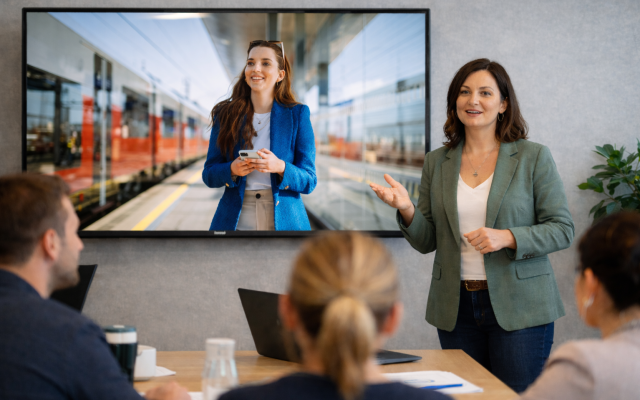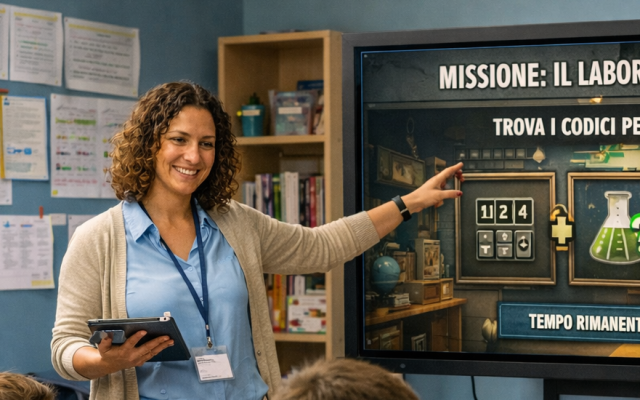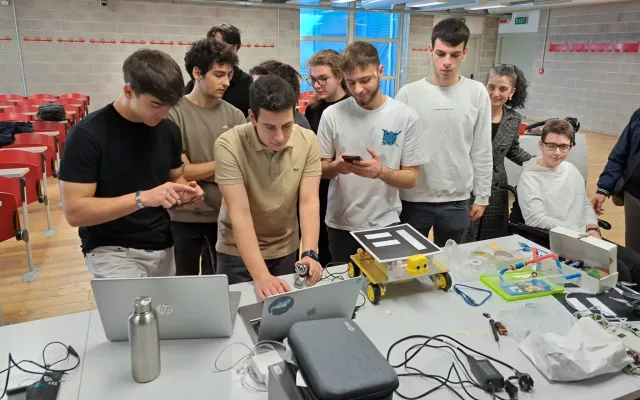Experience AI, teachers training in artificial intelligence
Among the events of Milan Digital Week is an afternoon of training and experimentation at the Severi Correnti high school in Milan as part of the Experience AI programme, created through a collaboration between the Raspberry Pi Foundation and Google DeepMind, supported by Google.org in Italy. The focus of the meeting, which involved around 70 teachers, was artificial intelligence as an educational lever for a more inclusive, critical and innovative school.
After greetings from headteacher Gabriella Maria Sonia Conte and project officer Debora Cavallo, teacher Riccardo Carli introduced the potential of artificial intelligence in teaching.
'Our teaching staff already felt a strong need for training on AI, so we enthusiastically seized the opportunity to host this event and join the project. It is particularly important to engage with the tool, but we need to know it well before implementing it in teaching practice. Young people need to be motivated and stimulated, and we cannot lag behind in terms of technology. Even though we use AI extensively, our students need guidance to help them understand the risks and potential," explained the headteacher.
Next, Fondazione Mondo Digitale trainer Elisa Chierchiello guided the teachers through the Experience AI training units: ready-made, easy-to-use modules focused on active learning and classroom interaction. The aim of the three-hour training session was to show teachers the resources provided by Raspberry on the Experience AI programme.
The session, designed as a ‘train the trainers’ course to facilitate navigation of the platform for all the teachers present, was divided into several phases: introduction to resources, basic concepts of artificial intelligence, and practical experimentation. Elisa began by illustrating which Experience AI programme resources are available to teachers. In total, six main Experience AI resources were introduced and explored in depth.
The teachers then had the opportunity to actively experiment with AI using Machine Learning for Kids to create and train a fruit classifier for a supermarket. The workshop activity demonstrated how the quality of a classifier is directly related to the quantity of images provided in the training set, intentionally producing initially sub-optimal results.
The activity was proposed as a practical example that teachers can replicate in the classroom. Participants were able to simulate activities, design courses and reflect together on the educational impact of new technologies, taking home concrete tools for educational innovation.



